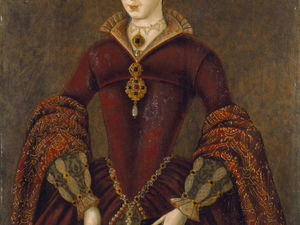Theresa May is playing it cool, says Chris Moncrieff
u Theresa May is being hailed as the Conservative Party’s new Margaret Thatcher.

To which I would reply: “Bunkum and balderdash”. These two women, both admirable politicians, are, if I may drag out the oldest cliche in the book, like chalk and cheese.
Thatcher was a raucous operator, thumping the table, brandishing her handbag, and, quite frankly, scaring the wits out of her opponents, usually the flint-faced Eurocrat grandees. It was a style that suited her well and paid off.
May, on the other hand, is no less effective, far more subdued than her illustrious predecessor and not someone, like Thatcher, to indulge in megaphone diplomacy.
A Tory colleague, the veteran Europhile Kenneth Clarke, recently described May as ‘a bloody difficult woman’. That is already beginning to show in the foothills of the Brexit negotiations, which should begin in earnest after the general election. If May is still in charge, the Brussels officials with whom she will be dealing over Brexit will find her a powerful negotiator who will stand no nonsense. They thought she would be an easy touch, someone who would surrender to their ludicrous demands as the price of the UK’s departure from the EU.
They are now discovering, to their consternation, that May is no pushover and will be as tough, if not a tougher nut to crack than Thatcher.
David Cameron made little or no impact on the Brussels bosses, although he claimed to have done so. But May will not easily let them off the hook.
u The cautious prime minister would never, for instance, do anything so daring as Thatcher once did during a visit to a farm in her first general election campaign as Tory leader in 1979.
To oblige photographers, she clumsily picked up a gangly, very young calf, only to hear her husband Denis shout at her: “Put the bloody thing down, woman. You’ll kill it.” For once Mrs T did as she was told. But, alas, the calf expired the following day.
u The immense problems that lie ahead for the prime minister are in no way alleviated by the accession to the French presidency of Emmanuel Macron. The new president, not yet 40 and who had never previously fought an election, is a confirmed Europhile.
In fact, he is so enamoured of the concept of the EU that he regards Brexit as a crime, no less. Which does not make the task of May, once again assuming she will still be in charge, any easier when she does do battle in Brussels.
To her face, the Brussels grandees are offering honeyed words, protesting that there is no question of punishing the UK for its decision to quit the EU.but behind her back, they are uttering all sorts of threats of what amount to imposing colossal ‘fines’ on the UK, although they would fiercely deny this.
There is no doubt – and with the added strength of Macron – they will try to squeeze as much blood out of the UK’s veins as they can.
This, quite frankly, is a disgraceful way to behave, and not only because, with the exception of Germany, we contribute more to the bulging EU coffers than any other members.
This is the reaction of greedy and frightened men, who envisage Britain’s departure as the forerunner of something much worse happening to the EU. They should be stopped in their tracks.
u Jeremy Corbyn, the Labour leader, is being ill-served by his deputy, Tom Watson. You don’t win elections by painting lurid pictures of your opponents riding high with a three-figure majority in the new parliament. Watson, no doubt, will be saying he is a realist, but during election campaigns, you are supposed to inspire your activists to greater things rather than imply – as some would see it – that it is all a lost cause.
Corbyn, if I may say so, is conducting an impeccable campaign, telling supporters there is still time to destroy the Tories’ present opinion-poll lead. He is at least preaching hope. Many Labour people may despise Corbyn, but he has been elected their leader and they should rally behind him, instead of behaving like a bunch of Jeremiahs.
u May surprised the political world when she appointed Boris Johnson as foreign secretary. He has never been noted for his diplomacy and tact, two essential qualities for the job.
Now he apparently fears he may be dropped if the Tories win a big majority on June 8. So far in this campaign, after his ‘Mugwump moment’, Johnson has been untypically quiet, possibly under orders from on high. It is, I suppose, inevitable that May will want to make some Cabinet changes – and Johnson, to his chagrin, could be high on the list for a move.





